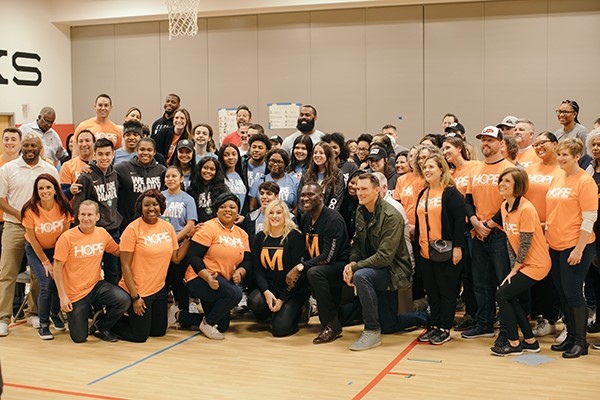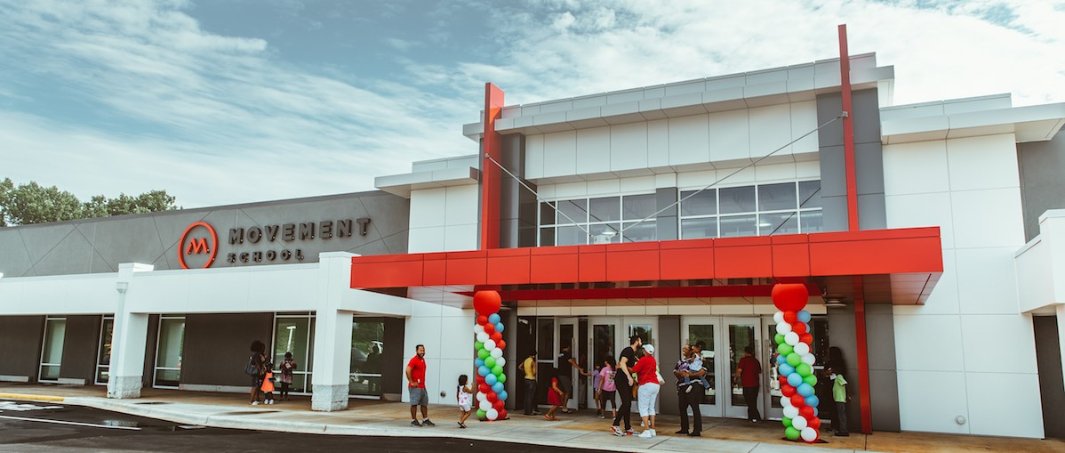Black History Month Spotlight: Colin Pinkney
This blog originally published on March 21, 2016
Seemingly unfazed by the screech of buzz saws and the cling-clang of metal meeting concrete, the small group of people absorb themselves in their daily chores: Mopping floors. Wiping windows. Folding napkins.
Their workspace smells of freshly cut wood, air freshener and glass cleaner. Some in their number hover above keyboards in a technology lab. Others gather in a makeshift classroom, notebooks and Bibles spread on a table in front of them.
Months ago, a few of these people were homeless.
But to watch them work on a recent Thursday was to witness the result of the "Transformation Program" piloted by the Harvest Center of Charlotte. Its aim: In six months, help the situationally homeless find permanent homes, land steady jobs and maintain healthy relationships.
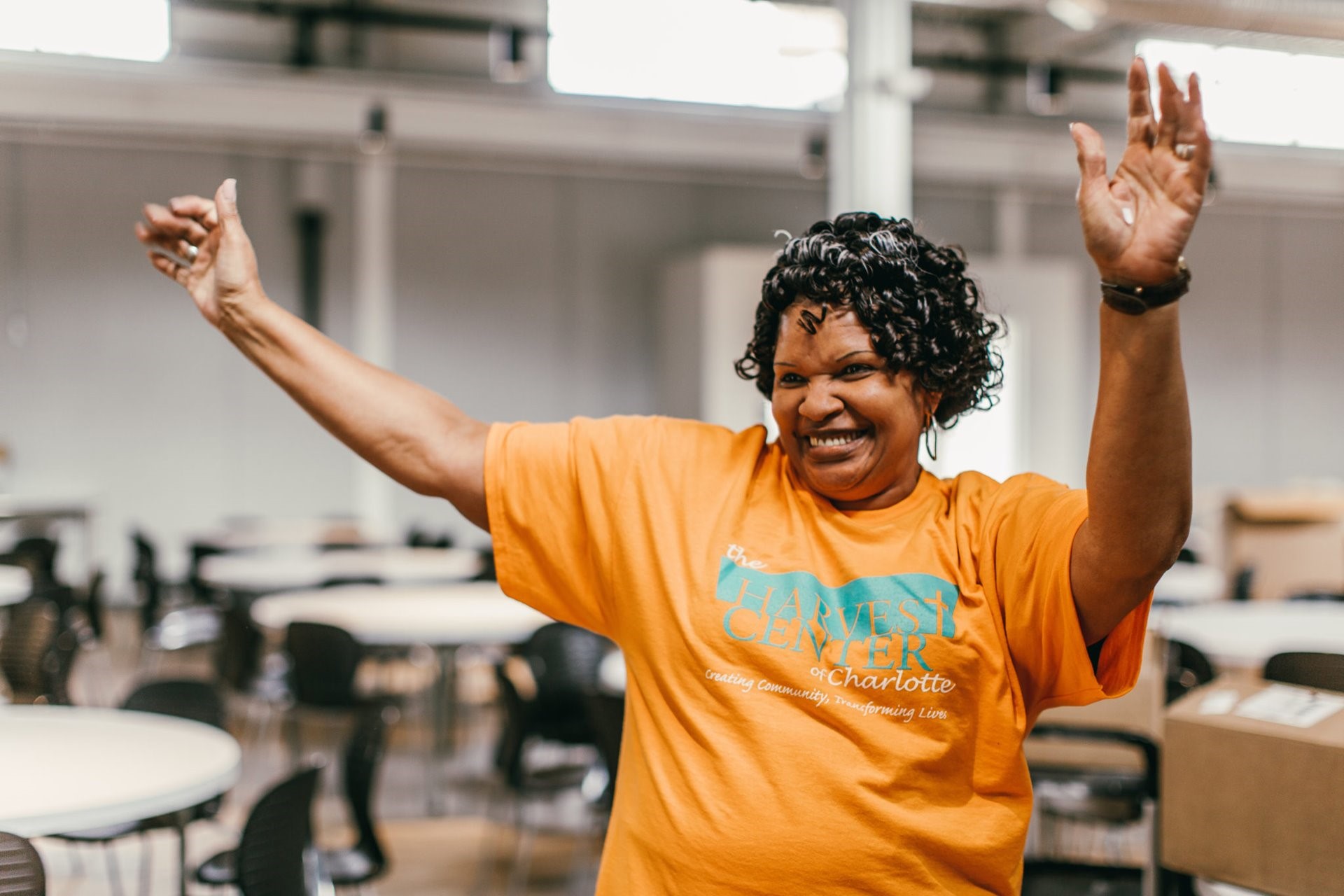
'Recalibrate' and re-establish
"We're finding a niche and need in our community," says center executive director Colin Pinkney. "Even though there are good intentions (from other organizations), there are still people falling through the cracks."
Some could have been sleeping in a hotel. Others, bunking on a friend's couch. Many suffer from dysfunctional relationships. The center's staff works to help people in their care "recalibrate" and re-establish structure in their lives, Pinkney says.
"If you don't have a plan, you're not going to do well," he says.
For over 20 years, the faith-based nonprofit has provided transitional housing, job training and counseling services to the homeless. The center also opens its doors to the community twice a week to serve breakfast and lunch, with a prayer and devotional.
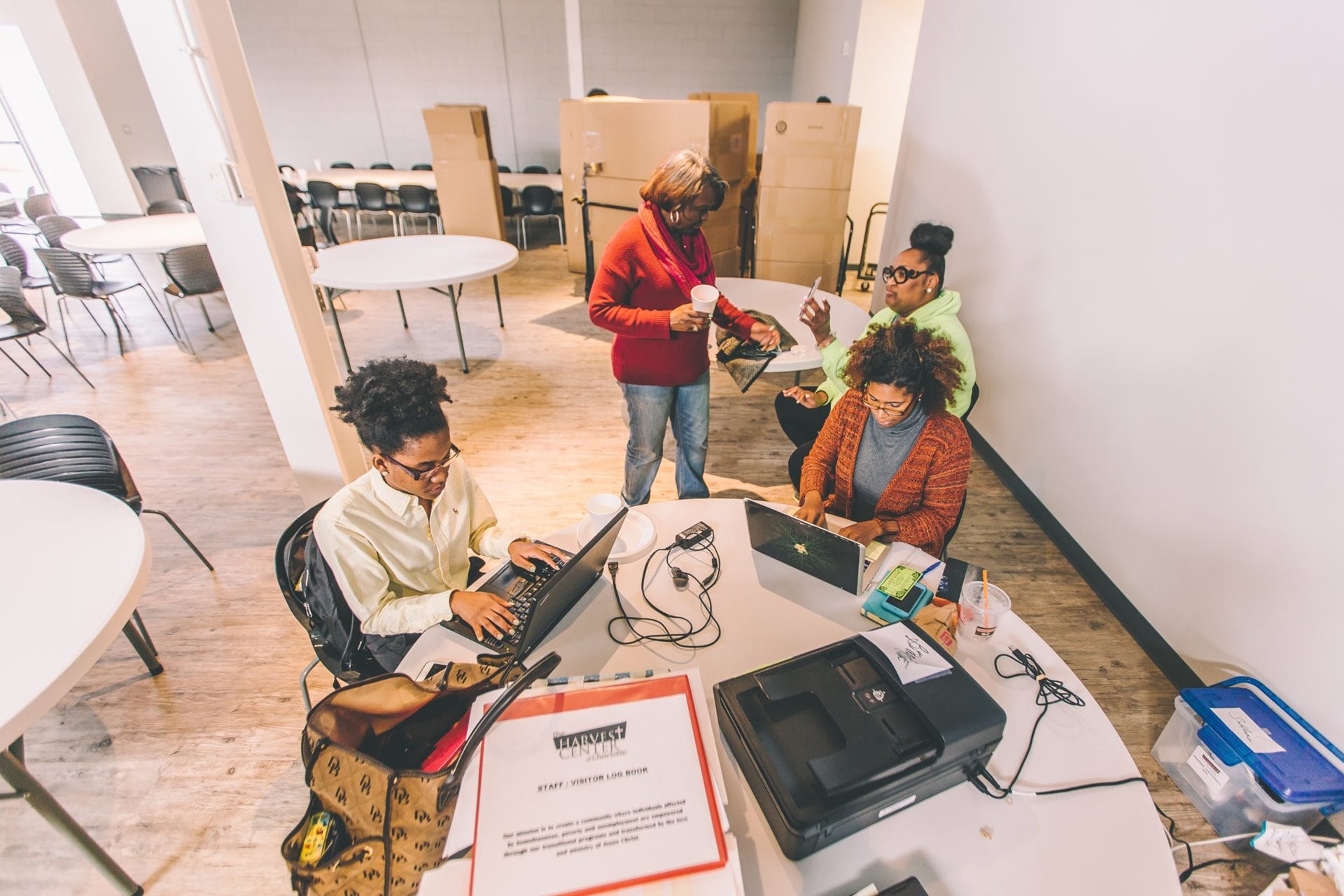
New home at the Movement Center
The group is the first to rent space at the Movement Center, an industrial warehouse turned community center on Freedom Drive in West Charlotte. It is owned by the nonprofit Movement Foundation and provides a low- or no-cost hub of services where local ministries and nonprofits can collaborate on how to address needs in their community.
Work continues on expanding the Movement Center to house other organizations, hence the ongoing construction.
"We were praying for our first tenant. We didn't know who it would be," says Garrett McNeill, director of the Movement Foundation. "The Lord brought the Harvest Center to us. They're meeting tangible needs. They're restoring and transforming lives. And they're faith-based. It's a perfect fit."
The foundation strives to bring life, light and hope into communities across the nation by re-investing in neighborhoods. McNeill said the foundation's goal is to serve west Charlotte, not change it.
The Harvest Center moved to its new home a month ago. It boasts a volunteer room, training lab and technology lab with computers, which tenants can use to search for work and write resumes.

Overcoming new challenges
Amenities like those come from donations — the center's only source of funding. Now that the center has its own space with room for more growth, donors have been more generous, Pinkney says. Churches gave the center $30,000 last year, up from just $2,000 a year earlier and corporate donations grew to $15,000, he says.
But challenges persist.
One of the Harvest Center's food providers has threatened to cut off its supply if the center's staff keeps praying and delivering devotionals at meal times.
Pinkney says he won't compromise.
"They want to restrict our spiritual component and I'm not interested," Pinkney says. "I'm not signing their agreement. It's who we are."
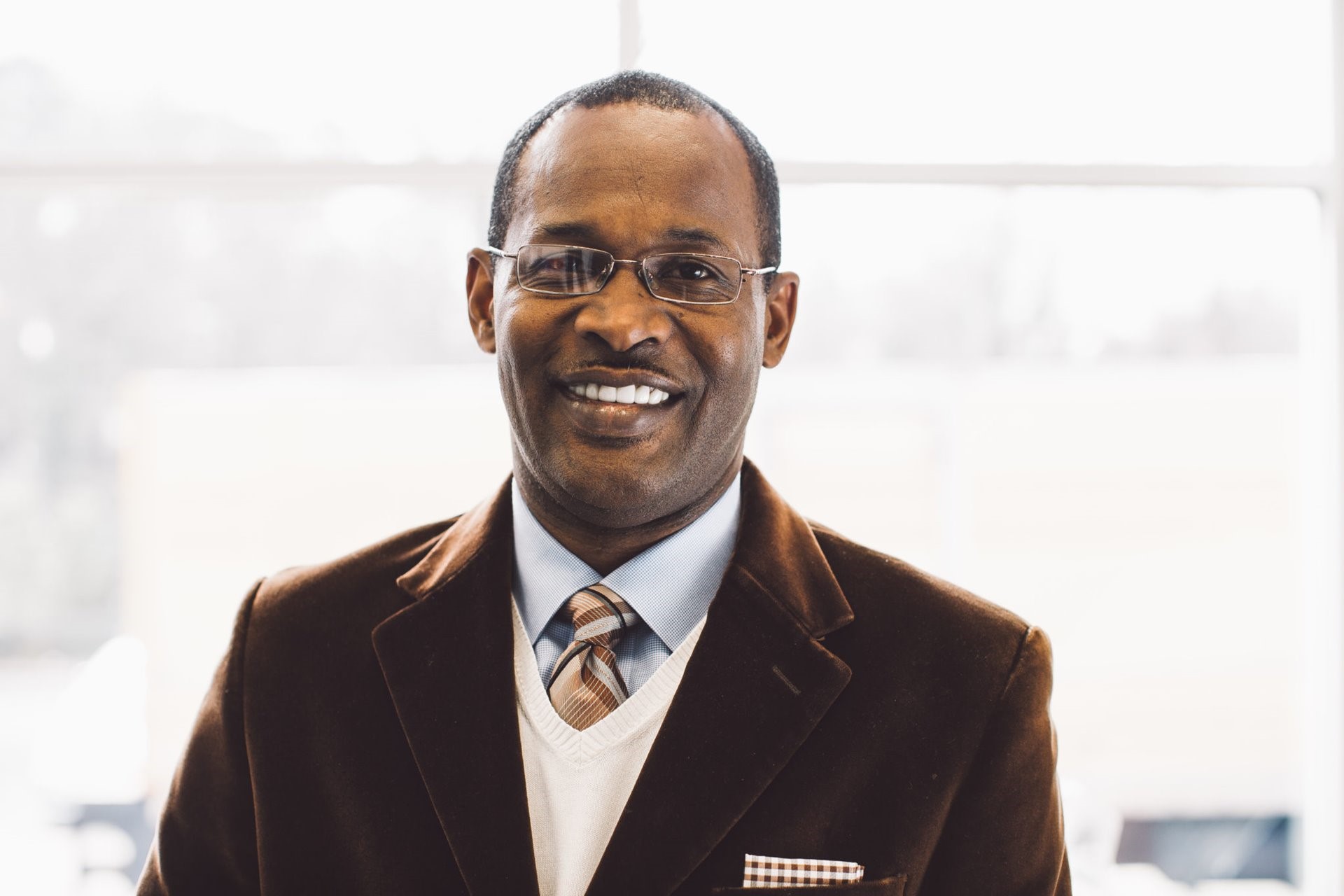
How 'Transformation' works
The Harvest Center's "Transformation Program" started four years ago. Today, it houses 14 people in five homes the center owns in Charlotte.
In the last 18 months, 24 people graduated from the program, Pinkney says. He wants that number to grow to 50 people-per-six month session.
Along with donations, the center relies on partnerships and "creative staffing," he says. An outside agency provides mental health services. The center's 10 staff members take turns teaching adult education classes that focus on business, technology, professionalism, finance and literacy.
Program graduates return to volunteer, alongside scores of church parishioners.
Corporate partners, including Coca-Cola, Cinnabon and Piedmont Natural Gas, help Harvest Center tenants land interviews with their companies, Pinkney says.
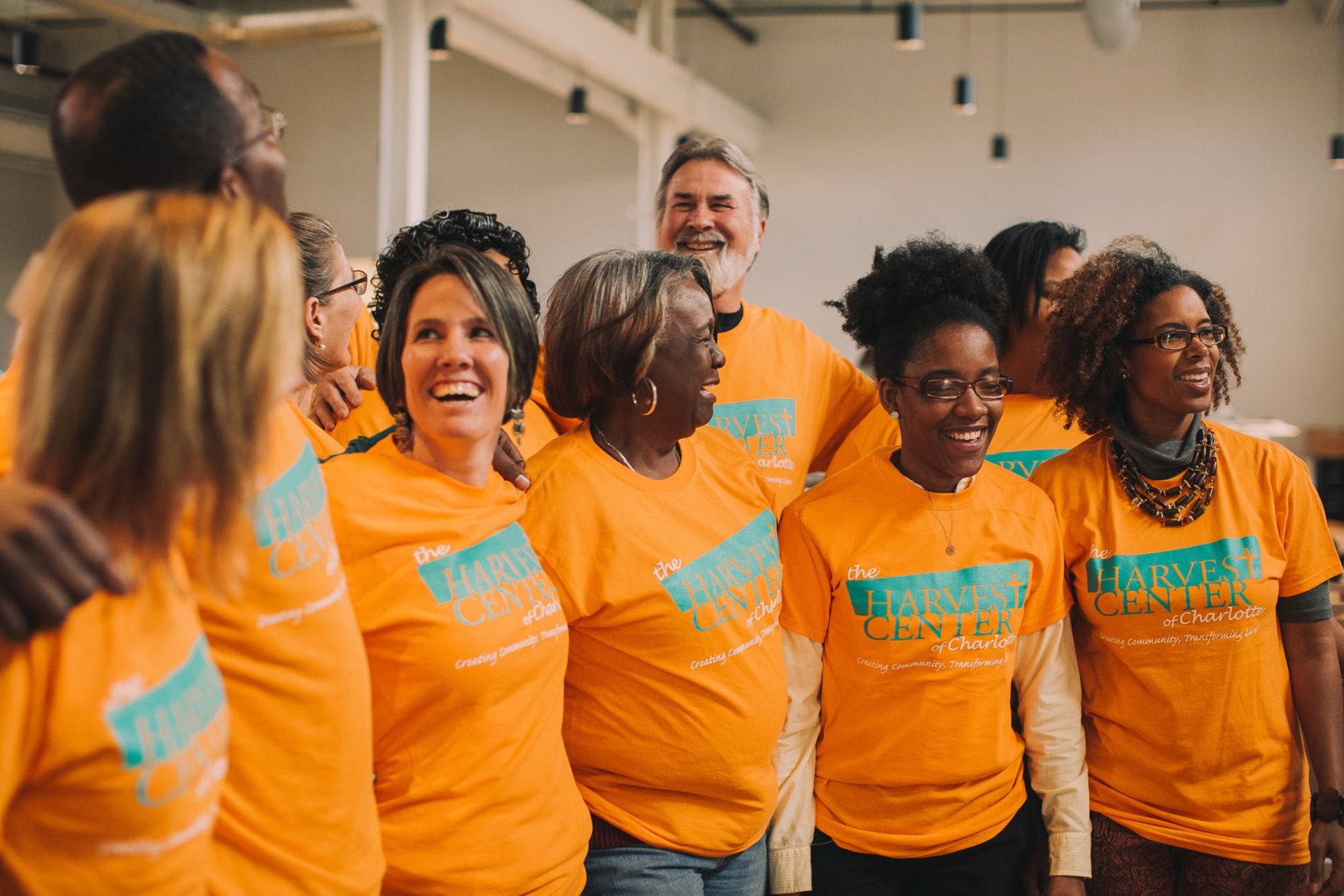
'Heavy doses of TLC'
The program only accepts single adults without children but extends services to people dealing with substance abuse issues.
When people start the program, they're not allowed to work for the first two months. Instead, they receive "heavy doses of TLC (tender love and care)," Pinkney says, so the staff can help them work through the spiritual, financial and emotional issues that contributed to their homelessness.
Each tenant gets "ministry assignments" — or daily chores — around the center. That kind of work helps put regimen and structure into their lives, Pinkney says.
By the third month, the job search begins, the hope being that they'll find work by the time their six-month session is over. If needed, tenants can apply for an extended phase — an additional six months with less intensive supervision and requirements, Pinkney says.
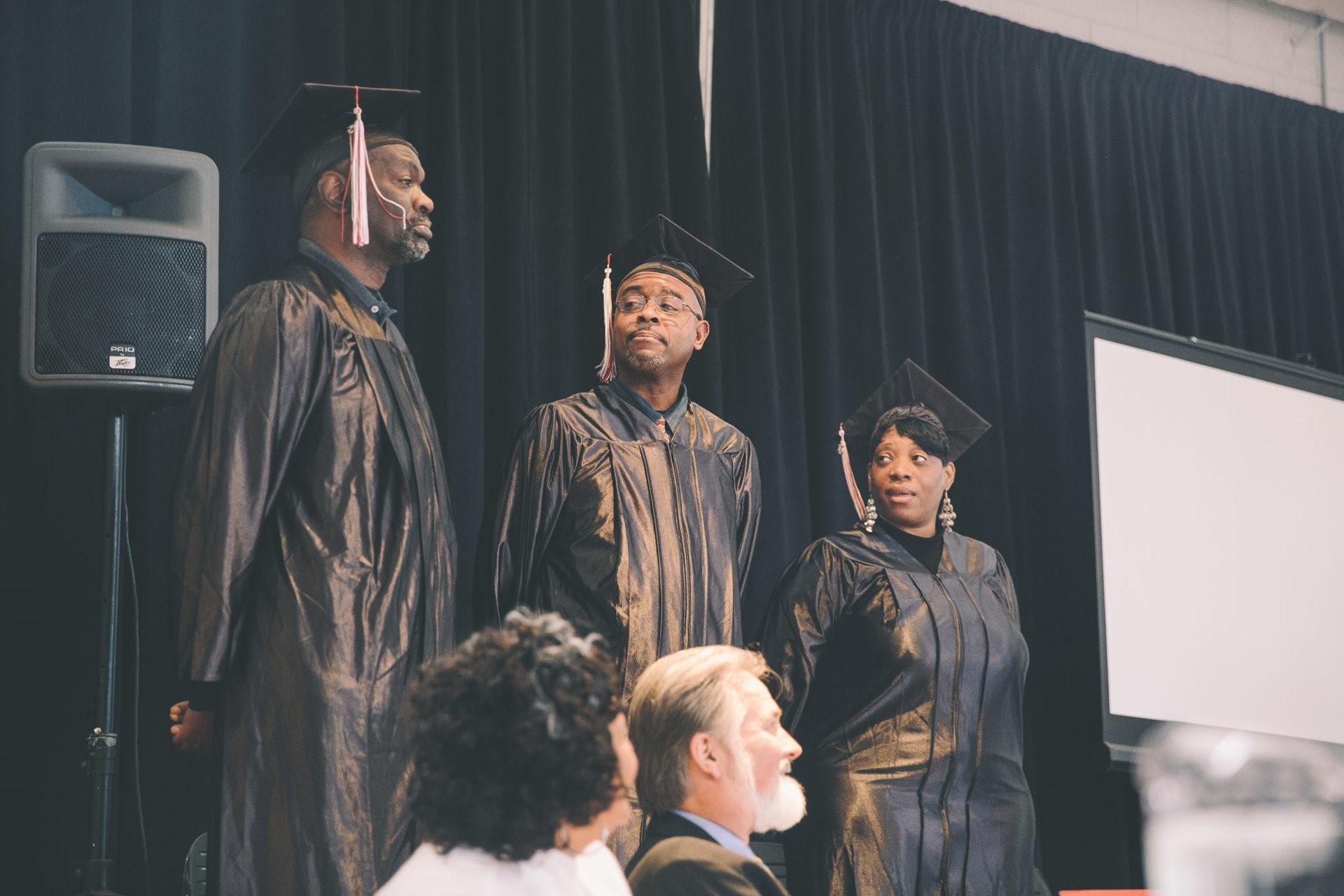
A jumpstart on life
Marvin Miller compares his time at the Harvest Center to a journey through the land of Oz, filled with brightness and genuinely happy people.
That's "unfamiliar territory" for Miller, 51, who learned about the center after a church that housed him threatened a court battle when his payments fell behind.
Today, he lives in one of the Harvest homes, where he's getting the "jumpstart" he needed, he says. During the day, he works in the center's commercial kitchen, washing dishes, under the watchful eye of kitchen manager Isabella Pickett.
Center staff have helped Miller identify his personal "brick wall" — mainly years of repressed anger stemming from the death of his mother when he was just 2 years old.
"I was angry at her for dying, and that had to come out," Miller says.
He's learned how to get in touch with his feelings. He's moved past the sense of betrayal he felt from the church that wanted to evict him.
"I got in touch with who I am," Miller says of the Harvest Center's approach. "This ain't just no bed for me."

Steadfast in faith
The Harvest Center's mission statement — to create a community where the homeless, impoverished and unemployed are empowered and transformed by the love and ministry of Jesus Christ — hangs on a wall in its expansive banquet hall.
There, the homeless and low-wage workers flock for a hot meal every Tuesday and Wednesday. Before they eat, there's a prayer. As they feast, there's a devotional and worship music.
Those activities have stirred controversy with a provider that gives the Harvest Center 50,000 pounds of food — about $80,000 in retail value — each year. The center served about 45,000 meals last year. Pinkney expects that to double this year, meaning the center will need "a lot more food."
Those supplies will keep flowing if the center stops offering prayer and preaching with its food offerings. Pinkney says that's not going to happen.
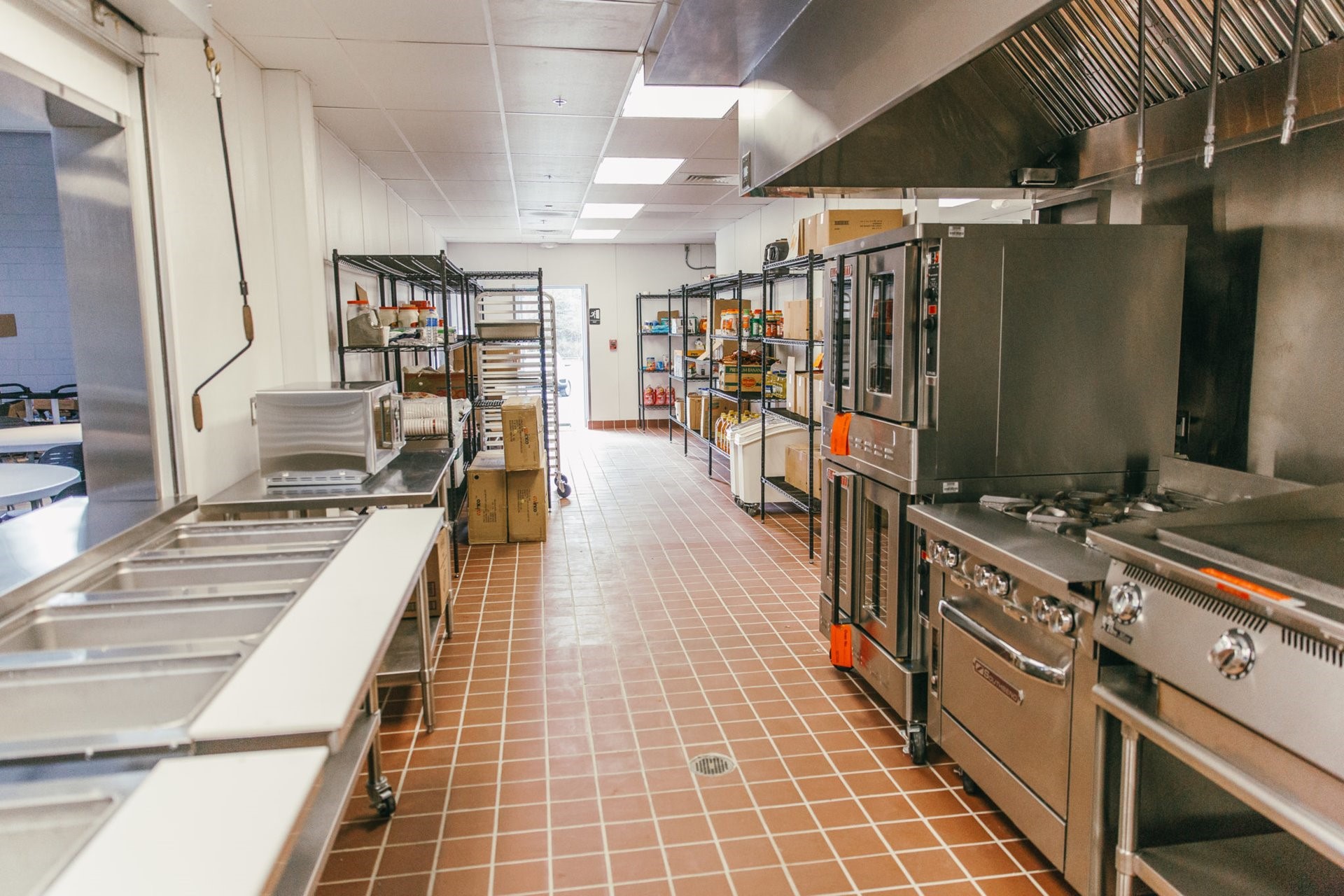
Along with food and shelter, he believes spiritual messages, music and ministry are what draw people to the Harvest Center in the first place.
"Even though they're homeless, they have…faith values like you wouldn't believe," Pinkney says. "They care about their faith, even in those circumstances. I will not be the guy that says, 'Let's start watering down who we are.'"
Pinkney says he and the center's staff are taking a "bold step of faith" and trusting God to provide. He's been in talks with "people of means" in Charlotte, and supplemental donations have started to pour in, he says.
"We're going to hold true to this value of praying, of singing songs of inspiration and worship and then delivering the message of the Gospel as the ultimate hope for every man, woman, boy and girl," he says.
He adds: "We know men and women need to eat… we also believe they need the king of glory in their hearts. That's the message we're going to keep."


